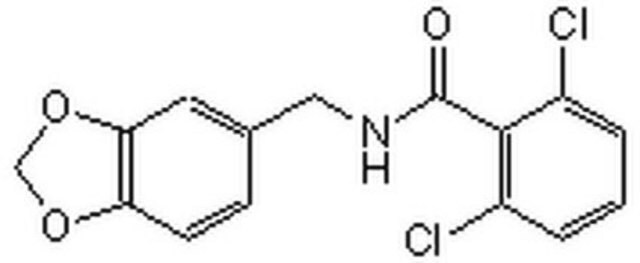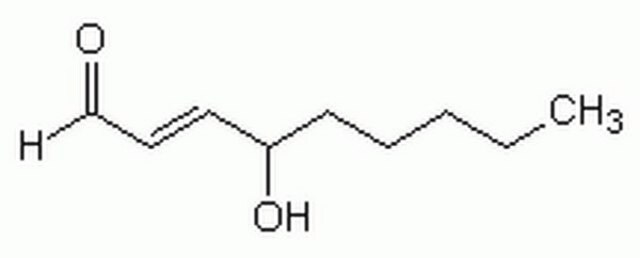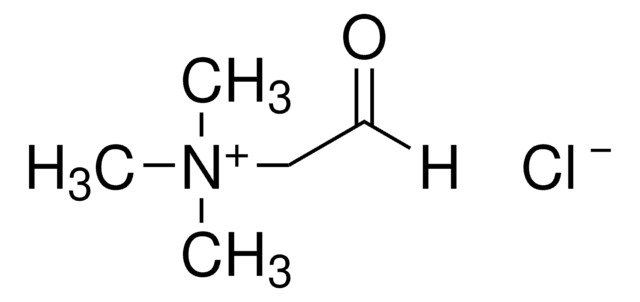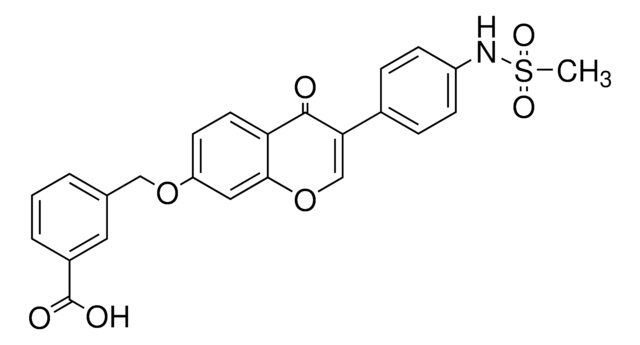SML0462
Alda-1
≥98% (HPLC)
Synonym(s):
N-(1,3-Benzodioxol-5-ylmethyl)-2,6-dichlorobenzamide
About This Item
Recommended Products
Quality Level
Assay
≥98% (HPLC)
form
powder
color
white to beige
solubility
DMSO: 10 mg/mL (clear solution)
storage temp.
2-8°C
SMILES string
Clc1cccc(Cl)c1C(=O)NCc2ccc3OCOc3c2
InChI
1S/C15H11Cl2NO3/c16-10-2-1-3-11(17)14(10)15(19)18-7-9-4-5-12-13(6-9)21-8-20-12/h1-6H,7-8H2,(H,18,19)
InChI key
NMKJFZCBCIUYHI-UHFFFAOYSA-N
Application
- to study its cryoprotective effects on H2O2-induced Achilles tendinopathy in mice Achilles tenocytes
- to study its protective effects against alcohol-derived DNA damage in ALDH2 knock out mice
- to study its effects on cutaneous wound healing in mice
Biochem/physiol Actions
Storage Class Code
11 - Combustible Solids
WGK
WGK 3
Certificates of Analysis (COA)
Search for Certificates of Analysis (COA) by entering the products Lot/Batch Number. Lot and Batch Numbers can be found on a product’s label following the words ‘Lot’ or ‘Batch’.
Already Own This Product?
Find documentation for the products that you have recently purchased in the Document Library.
Articles
DISCOVER Bioactive Small Molecules for Nitric Oxide & Cell Stress Research
DISCOVER Bioactive Small Molecules for Nitric Oxide & Cell Stress Research
DISCOVER Bioactive Small Molecules for Nitric Oxide & Cell Stress Research
DISCOVER Bioactive Small Molecules for Nitric Oxide & Cell Stress Research
Our team of scientists has experience in all areas of research including Life Science, Material Science, Chemical Synthesis, Chromatography, Analytical and many others.
Contact Technical Service